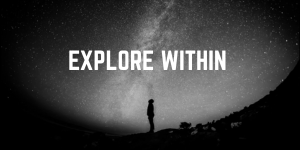In an era where spirituality increasingly diverges from traditional religion, atheist chaplains like Jason Callahan are making a profound impact.
Working in a palliative care unit, Callahan provides comfort to patients without invoking the divine. Instead, he meets individuals in vulnerable moments with compassion, understanding, and no religious agenda. For Callahan, “being an atheist… lends itself really well to chaplaincy because we naturally don’t project our own stuff on the people.” This nonreligious approach speaks to a growing population of people who identify as atheist or agnostic yet still seek meaning and solace in life’s most challenging moments (CNN).
This shift reflects a broader societal transformation. About 28% of U.S. adults now identify as religious “nones”—individuals who consider themselves atheist, agnostic, or unaffiliated with any faith, according to Pew Research Center. Despite this secular outlook, many of these individuals still wrestle with existential questions, a need for connection, and the desire for support, especially when facing significant life events. The field of chaplaincy, once rooted in Christian tradition, is expanding to include a diverse range of faiths—and now, people with no religious beliefs at all.
Historically, chaplaincy involved short, pastoral visits to provide ritualistic or faith-based guidance. But as society has diversified and the role of spirituality has shifted, the modern chaplain’s role has evolved.
“Every single thing that a religious person experiences, nonreligious people experience, too. It’s just learning how to translate and speak that language in a way that makes sense,” Callahan notes, highlighting the universal needs for support and comfort across belief systems
For atheist chaplains, the emphasis is on focusing on life here and now, unanchored by ideas of an afterlife or divine judgment. Greg Epstein, a humanist chaplain at Harvard and MIT, views his role as offering “clergy for the nonreligious,” providing individuals with support that honors their beliefs, or lack thereof. His work centers on the idea that, regardless of religious affiliation, people need guidance, connection, and an outlet for existential reflection. “I really want students to step back from the treadmill for a while and ask themselves: Why am I studying so hard? Why am I working so hard?” Epstein says, describing his efforts to foster dialogue about leading fulfilling lives amid societal pressures .
A Connection with the Divine
While not all individuals subscribe to organized religion, having a connection to a sense of the divine—whatever form that takes—can provide significant benefits for mental health and emotional resilience. Dr. Lisa Miller, psychologist and author of The Awakened Brain, describes this connection as an essential part of human experience, one that promotes mood stability, resilience, and deeper meaning. “A personal spirituality, whether it is traditionally religious or entirely individual, is linked with lower rates of depression and anxiety, and promotes a sense of connectedness,” Miller notes, emphasizing that a spiritual practice, in any form, “helps individuals make sense of their lives and find resilience in the face of adversity” . This openness reflects a broadening understanding of spirituality, honoring diverse interpretations of the divine while recognizing that, for many, a connection to something beyond oneself is an important part of a fulfilling life.

Epstein, who has been serving in his role since 2005, has observed that secular society often lacks the sense of community, purpose, and connectedness that religious people may find within faith communities. His response has been to create alternative spaces for reflection and connection, and he describes himself as “clergy for the nonreligious.” As he explains, “I liken humanist chaplaincy to astronauts…you can’t just meet one of us wherever you go,” yet their role continues to “have a tremendous impact on the culture around us and on people’s overall sense of what is humanly possible” .
At the University of Southern California, Vanessa Gomez-Brake, a humanist chaplain, responds to the increasing desire for spiritual exploration by introducing students to practices that include astrology, tarot, and crystals. For Gomez-Brake, these nontraditional tools allow students to explore metaphysical concepts and develop a vocabulary for spirituality that does not rely on religious doctrine. “We’re at a point in our society where we need to come up with new language,” she explains. “What is this meaning making if it doesn’t involve a religious institution?” .
As the country becomes less religious, the field of chaplaincy will likely follow, with figures like Epstein and Callahan leading the way. Callahan observes a growing need for spiritual support unbound by religious dogma, especially as society faces existential threats and challenges from technology, climate change, and an increasingly uncertain future. “As we become more and more personally disconnected, we need those people that specialize in people,” Callahan says, emphasizing that the work of secular chaplains speaks to an enduring human need for connection and understanding .
The rising prominence of atheist chaplains highlights a transformation in spiritual care, one that embraces diversity of thought and belief while meeting universal human needs. As more people move away from organized religion, figures like Callahan, Epstein, and Gomez-Brake are redefining what it means to offer spiritual guidance in a pluralistic, interconnected world. With each interaction, they demonstrate that support for the soul need not be the sole domain of the religious but a shared, inclusive journey toward understanding and comfort.
(Quotes and references from Harmeet Kaur, “Atheist Chaplains Are Forging a New Path in a Changing World,” CNN, November 7, 2024, and Dr. Lisa Miller, The Awakened Brain.)











